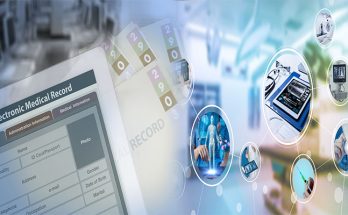Healthcare data analytics has the potential to revolutionize patient care and improve healthcare outcomes. By harnessing the power of data, healthcare organizations can gain valuable insights that can inform decision-making, improve treatment plans, and enhance patient experiences. However, along with the benefits of healthcare data analytics come significant security and privacy considerations. In this article, we will explore the importance of security and privacy, as well as key considerations that must be addressed when implementing healthcare data analytics.
The Importance of Security and Privacy in Healthcare Data Analytics
- Patient Confidentiality: Healthcare data analytics involves the use of sensitive and personal patient information. It is of utmost importance to protect patient confidentiality and ensure that their data is not accessed or used inappropriately. This includes complying with regulations such as the Health Insurance Portability and Accountability Act (HIPAA) in the United States and similar laws in other regions.
- Data Breaches: Healthcare data breaches can have severe consequences, including the compromise of patients’ personal information, financial loss, and damage to the reputation of healthcare organizations. Implementing robust security measures is crucial to prevent unauthorized access and data breaches. Encryption, access controls, and regular security audits are some of the key measures that should be in place.
- Ethical Considerations: Healthcare data analytics must adhere to ethical principles to ensure the responsible use of data. Respecting patient autonomy, informed consent, and privacy rights are essential when dealing with sensitive healthcare information. Transparent policies and clear communication with patients about data collection, usage, and storage are essential to build trust.
Security and Privacy Considerations in Healthcare Data Analytics
- Data Governance: Establishing a robust data governance framework is essential to ensure security and privacy in healthcare data analytics. This includes clearly defining data ownership, access controls, and permissions. Regular monitoring and audits should be conducted to identify any potential vulnerabilities.
- Data Encryption: Encryption plays a vital role in protecting healthcare data during storage and transmission. Implementing strong encryption algorithms can significantly reduce the risk of unauthorized access, even if data is somehow intercepted or compromised.
- Anonymization and De-identification: To further protect patient privacy, healthcare data should be anonymized or de-identified whenever possible. Removing personally identifiable information or using methods to de-identify data can help reduce the risk of re-identification and protect patient identities while still providing valuable insights for analysis.
- Secure Infrastructure and Networks: Robust security measures should be implemented to safeguard the infrastructure and networks used for healthcare data analytics. This includes firewalls, intrusion detection systems, and regular security updates to mitigate potential vulnerabilities.
- Employee Training and Awareness: Healthcare organizations must provide comprehensive training and awareness programs to employees involved in healthcare data analytics. This includes educating staff about security best practices, data handling protocols, and the importance of maintaining patient privacy.
While healthcare data analytics holds tremendous potential for improving patient care and healthcare outcomes, it is essential to prioritize security and privacy. Protecting patient confidentiality, preventing data breaches, and adhering to ethical considerations should be at the forefront of any healthcare data analytics initiative. Addressing security and privacy considerations through robust data governance, encryption, anonymization, secure infrastructure, and employee training can help ensure responsible and secure use of healthcare data for the benefit of both patients and healthcare organizations.





